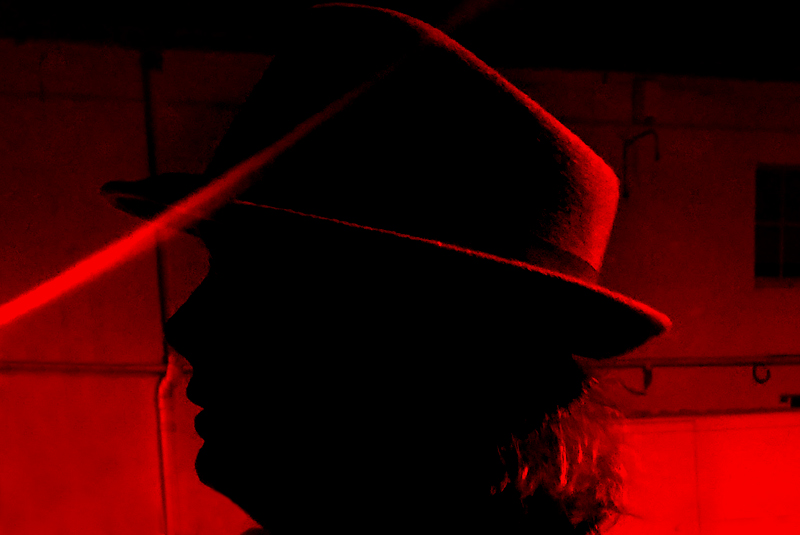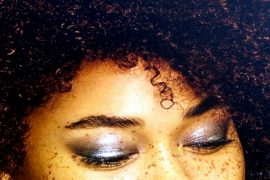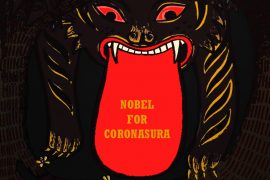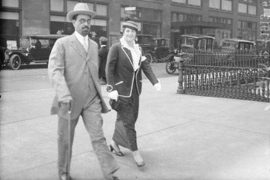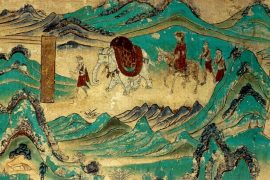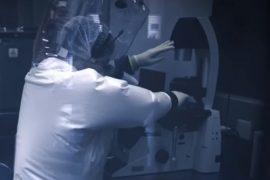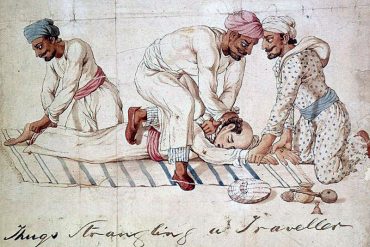My name is David Robert Allan. I was born fit and healthy in Stirling Royal Infirmary on the May 13, 1959. I am 61 years old. I suffer from a Neurological condition called Kernicterus. This is the story of my life.
My mother Betty Allan had a rare AB rhesus negative blood group and as per the laws of nature, her biological children did not share it. This effectively meant that her children were at risk of infantile jaundice. Infantile jaundice is very common in babies, but in some cases of extreme jaundice, bilirubin build up can cause a medical emergency in neonates which requires an immediate change of blood, called an exchange transfusion. Once the diagnosis takes place and a transfusion administered immediately, the baby progresses with no ill effects. This is exactly what had happened with my elder brother some 3 years before I was born.
Soon after my birth, the nursing staff disappeared with the bright yellow baby that was me. My mother became uneasy. She found her medical notes left by mistake on her bed, hid them under the blankets, and rummaged through them. To her horror she found the following letter, the implications of which had never properly been discussed with her, penned soon after the birth of my brother.
This is a bad look out for this young woman’s future. It is at least highly probable that the husband is homozygous for the positive Rhesus factor and that all his babies are liable to be similarly affected.
It is not clear what happened to me then, as my neonatal medical notes are now not in existence. Eventually, it seems, I did receive a blood transfusion, and then a second booster transfusion. But sadly, and surprising, given the circumstances, this was not soon enough, and the critical window of time was missed, with catastrophic results for me.
It was indeed a “bad look out” for my mother. I was an oddball from the very beginning. I was bright yellow when I arrived home and the neighbours joked that I might be the next Dalai Lama.
Due to the sensitivity of my skin I could not be bathed in soap and water, so for the first year of my life I was bathed in olive oil. I screamed and arched my back. I had major digestive problems, which meant that for 3 years I vomited at least half of my food intake. I did not have normal sleep patterns and for years my mum averaged 4 hours sleep per night. My eyes were squint and required 2 eye operations when I was a year old.
I never crawled but dragged myself across the ground with my arms. And until well after I was two and a half years old, I did not walk. Before I walked, I would stagger everywhere. Cerebral palsy was suspected. At the age of 3, I had no speech. Nobody knew if I could hear. I did not develop bowel control until aged 4.5 years.
We lived in a tiny remote, Scottish Highland village. In order to investigate these developmental difficulties further, my parents were advised to send me to a large Glasgow ENT hospital for a month of ongoing tests over 100 miles away. They were told not to visit. So, at three, I was left in the hospital with no parental support, while various hearing tests were done to my head – a situation unthinkable today.
I had no language. I was terrified. I was deemed uncooperative and restraint was used. When my mother came to collect me, I would not look at her. Hearing tests were inconclusive but I was deemed to have a low intelligence and my parents were offered a place in a home for “subnormals.” They refused.
I returned home in a state of shock. I held my breath and shook. I followed my mother everywhere. I was afraid of new people. Bedtime was an ordeal. I had developed asthma. My parents noticed that when the word “hospital” was mentioned, I would go onto a state of catatonic shock. It was then that they concluded that I must be intelligent enough to teach myself to lipread. In our house, my family had to spell the word “hospital” verbally letter by letter. They could not have suspected the truth.
My mother’s instinct told her that I was not subnormally intelligent . As I was her third child, she compared me to her other children’s development. At age 3 years, I would for example, lie on the floor watching while she cooked, and at times would gesture to the next ingredient.
Our family narrative was that I had been “brain damaged at birth.” “Will he ever be normal?,” my grandmother would ask.
When I was 4 years old, my mother made a decision that she, as my mother, was an authority on her own child, and would make her own decisions on my behalf. This was to prove life-changing.
At 6 years old, I was taken to an outpatient appointment in Aberdeen where my mother insisted she be present. I was diagnosed with profound high frequency deafness and given hearing aids which were tied on to my body. They amplified every sound which was, at times, excruciatingly painful.
I went to the one-teacher 18 pupil village school alongside my siblings and developed some language although most people found it unintelligible. I did, however, progress up the school and it was clear that I enjoyed learning. I became an avid reader.
We moved to the less remote North East Coast of Scotland where services were better. I was eventually offered a residential school in Brighton for higher education. My parents refused and kept me at the local schools. Eventually, against the odds, I went to Edinburgh University.
One of my most difficult challenges was my incapacity to make my self understood in a conversation and attempts to do this constantly exhausted me physically. I registered for an Ecology degree course, but had to abandon it when my cerebral palsy involuntary movements made it impossible to cut slides in chemistry class. I had to change to Scottish History.
Looking back, it is not clear to me how I overcame the many challenges of obtaining a degree in an educational institution with scant awareness of disability. My brain often simply cut out, and memory sequencing was always difficult. My written work, completed slowly and meticulously, in my own time, was often first class degree material, but under exam conditions my hands would writhe and then freeze, making it very difficult to write.
At final exams I was given a concessionary 4.5 hours to complete each 3 hour exam. My hand coordination would typically last 2 hours – so I could not use my potential. I was finally awarded a 2.2 honours Degree. Far less than I knew I was capable of. During this time, I approached many doctors to try to shed light on my neurological challenges to no avail.
The next years were years of depression, I lived as a hermit. I chose to have little to do with the world. I established my own home with my parents help and had little human contact. It took other people a great deal of focus to communicate with me and most people didn’t have time. I did manage to pass my driving test. One of the other village people who made the effort to communicate with me in the pub, was the SNP politician. Angus Robertson–we talked Scottish History.
My relationship with my beloved mother was always my most special gift. She died in 2000.
In 2013, the Westminster Government subjected all disabled people to a “work capability assessment.” I was required to attend a medical assessment interview from someone who was a Consultant Geriatrician. She reached the conclusion that I did not fit the criteria, which implied that I was not disabled. She recommended that my state financial assistance should be stopped and that I should attend the Job Centre. I was dumbfounded. This threw me into a state of suicidal chaos and distress. My GP was very supportive and with my siblings help we eventually successfully appealed. My mood swings were accentuated and I was very angry.
Soon after, my sister Madge had researched my symptoms. She handed me a book entitled “Kernicterus” by a Chicago neurologist, Dr David W. McCandless. By the time I reached page 18 of the book, I knew I had finally, after 55 years, found some of the answers to my neurological damage. I was a classic case of Kernicterus.
What on earth is Kernicterus? Here’s a definition:
Kernicterus is a bilirubin induced brain dysfunction…Hyperbilirubinanaemia may cause bilirubin to accumulate in the grey matter of the central nervous system, potentially causing irreversible neurological damage – dependent on the level of exposure, the effects range from clinically unnoticeable, to severe brain damage and even death.
Symptoms are on a spectrum, including movement disorders, auditory neuropathy, visual impairment, dental enamel issues and gastric problems.
Soon after this, I found myself in a medical emergency with my sluggish digestive system and weak throat muscles. Some chicken lodged in my gullet and I could not breathe. I was admitted to the hospital and my treatment took place in the absence of awareness of Kernicterus and my sluggish throat muscles. During the flurry in A and E, my gullet was pierced during an endoscopy, and I required emergency surgery again. I was hospitalised for 3 weeks.
I attended appointments with a Consultant clinician, a specialist in rehabilitative medicine. She was not aware of Kernicterus. I attended various appointments with a senior audiologist who tried to ascertain if I had auditory neuropathy. This is a very different condition than profound deafness and needs a different treatment approach. His equipment could not function due to my cerebral palsy – he had to look-up Kernicterus. It is clear to me that I do indeed have auditory neuropathy.
I began to read extensively on Kernicterus. I attended an appointment with a Neurologist in Aberdeen in order to try to obtain a diagnosis. In his report he concludes:
A broad umbrella term for his condition would be cerebral palsy although it seems they would prefer a term of Kernicterus.
(The two are not the same.)
Having watched him online lecture to paediatricians on the subject of preventing the condition, I contacted a senior neonatologist, who took time to see me informally. He had never met an adult with the problem but had seen many infants. In his opinion, I was a classic case, but he was unable to offer a diagnosis as he was not an adult neurologist. He suspected I had been born on a Wednesday. He was correct. Apparently things can fall between the net when hospital shifts change at weekends.
I began to research the subject online. I came across an organisation called PICK – Parents of Infants and Children with Kernicterus. It had been founded by a group of parents in 2000. They managed to set up a medical centre of excellence in Kansas City. There, a team of doctors and researchers, led by Dr Stephen Shapiro, were leading the world in this pioneering research.
PICK has two facebook pages, one for UK families. I read posts from desperate, heartbroken young mothers begging for help in understanding their babies and struggling to get the correct diagnosis or medical help and being routinely fobbed off with ignorance and misunderstanding–echoes of my own story, again and again.
Some of these children were based in Scotland. This is happening 61 years after my experience and little appears to have changed. Although the Americans had developed treatment for some of the symptoms, not much seemed have changed. Kernicterus is a preventable condition which has devastating consequences.
All children are differently affected within the parameters of the condition. I began to realise my own experience could be used to offer hope to others. In a sense, our family were Kernicterus ancestors. My mother passed on, never understanding the reality of what had happened to me. I have still never received a diagnosis – and the level of medical ignorance of the condition, beyond neonatology is staggering.
Susan Haas and Miriam Iliff are two parents who run the American PICK charitable trust. They have asked me to become a special envoy for their organisation to offer assistance from the inside out to desperate parents facing the kind of challenges my mother and I faced.
I now want to go on a journey of discovery. I want to go to Kansas city and meet the experts. I want to meet the parents who created the centre of excellence. I want to find out how I can be of service. I might even achieve a diagnosis from a neurologist there if I cannot receive one in Scotland. Is there a test conducted on all neonates that can make Kernicterus a “never” event? If so, why can’t we have it in Scotland?
How big a problem is this? This is apparently a rare condition? How can current incidence statistics be accurate if people like me remain undiagnosed? How many cases do we have in Scotland? I know of other severely challenged parents in Scotland – what has their experience been? What does the Scottish government do about it? What is the World Health Organisation doing about this?
In the USA, parents who attend neurology conferences have the diagnosis questioned, even although their wheelchair bound children are beside them. Is the medical reticence to deal with the problem based on the fact that this is always caused by medical negligence and therefore hard for a profession to address? Or, could it be that, if this were public, the medical profession might be inundated with fearful parents whose babies were jaundiced under normal bounds, demanding tests? Research suggests that, in developing countries such as Nigeria, Kernicterus is the second most common cause of childhood death after birth asphyxia. So is it really so rare?
Why are medics not trained to recognise the effects of this condition? What are the true facts?
Before she died, my mother wrote a poem for all of her children. This is what she left to me (see below). It, too, was prophetic. For having understood who I am, I have now recognised that “I truly have unique life experience” to offer others. Knowing what my condition is, I can accept it and myself.
I can now make the vital psychological adjustment to my many challenges. If my own life experience can empower a young parent to advocate for her child and not lose hope, then my life will have meaning and purpose. And in the words of my mother I can finally see “how rich and full my life can be.”
Here’s the poem my mother wrote:
Davie Faa,
1. Davie Faa ootshines us a’
But winna let ye say it
He’s deef and lame and hault an ‘maimed
An that’s the way he’ll hae it!
He’ll nae let ye gainsay it.
2. Davie Faa outstrips us a’
In intellect an ‘gumption,’
But he’s a gowk-an-thinkin-fowk
Would haud his loss against him.
It ADDS to his dimension!
3. Davie Faa’s oor ain dear lad,
We widna hae him ither,
If only he would look an’ see,
How rich and full his life could be.
Yon albatross he’s warin’
Is really a reed herrin.’
4. Davy Faa , you’re searchin for a fantasy ideal,
Ye dinna ken that in yer haun,
Is the prize that’s rich an real.
An the secret is revealed.
5. For Fate’s been bountiful to you,
Wi talents rich and varied
Only a special chosen few,
Are burdened, as Fate burdened you
Although we fain would share it,
Only your strength can bear it!
(Translation from our Mother Tongue- Scots “Doric “or “Broad Scots” )
Falling Over Davie
Falling over Davie outshines us all
But won’t let you say it
He’s deaf and lame and limping and maimed and that’s the way he sees it
He wont let you contradict this view.
Falling over Davie outstrips us all in intellect and gumption,
But he’s an “idiot” and thinking people would hold his loss against him.
It ADDS to his dimension.
Falling over Davie is our own dear lad,
We wouldn’t have him any other way.
If only he would look and see how rich and full his life could be,
Yon albatross he’s wearing is really a red herring!
Falling over Davie, you’re searching for a fantasy ideal
You don’t know that in your hand is the prize that’s rich and real
And the secret is revealed.
For Fate has been bountiful to you
With talents rich and varied
Only a special chosen few are burdened as Fate burdened you.
And although we would gladly share it
Only your strength can bear it.
-30-
Copyright©Madras Courier, All Rights Reserved. You may share using our article tools. Please don't cut articles from madrascourier.com and redistribute by email, post to the web, mobile phone or social media.Please send in your feed back and comments to [email protected]

